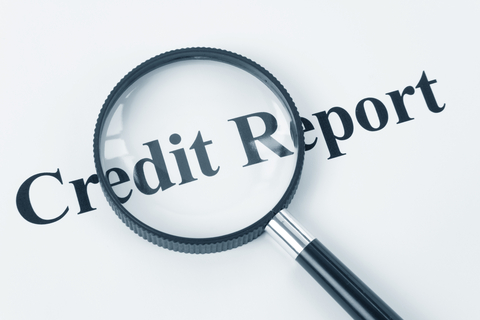
Individuals and businesses in Montana that are facing financial distress may be entitled to achieve debt relief through bankruptcy. However, filing for bankruptcy can affect your creditor rating. In addition, it may stay on your report for a while and might make it challenging to secure future credits or loans. Therefore, if you want to understand how bankruptcy affects your credit score and how long it may appear on your credit report, it may be beneficial to speak with a seasoned Montana bankruptcy attorney.
At Geranios Law, PLLC, I’m committed to offering experienced legal guidance and reliable advocacy to clients in bankruptcy legal matters. As your attorney, I can enlighten you about each bankruptcy chapter and how long they may stay on your credit report. Also, I will guide you through the bankruptcy filing and provide you with insightful tips to rebuild your credit gradually. My firm proudly serves clients across Missoula, Bozeman, Beaverhead, Billings, Deer Lodge County, Broadwater County, Flathead County, and Powell County, Montana.
Chapter 7 Bankruptcy
Chapter 7 bankruptcy, also known as “liquidation bankruptcy,” helps consumers eliminate most of their general unsecured debts and achieve a deserved financial fresh start. In Chapter 7, the court-appointed trustee will handle every aspect of your bankruptcy case.
In addition, the trustee will collect, evaluate, and sell all of your non-exempt assets. Non-exempt assets are assets and property—such as vacation homes, second cars, second homes, bonds, bank accounts, stocks, cash, family heirlooms, and other investments—that can be sold in a Chapter 7 case. The net proceeds from the sale will be used to pay off some or all your outstanding debts.
Furthermore, you may still be able to retain your exempt assets, including your primary car, home, furniture pieces, clothing, and household appliances. A dedicated lawyer can determine your eligibility for Chapter 7 and guide you through the filing process.
How Long Does It Stay on Your Credit Report?
Additionally, if you file for Chapter 7 bankruptcy in Montana, it will stay on your credit report for ten (10) years. The information about your bankruptcy filing will be available to potential lenders.
Chapter 13 Bankruptcy
Chapter 13, commonly referred to as “wage earner’s” bankruptcy, is designed to help individuals who earn a reasonable income but have huge bills and debt burdens. Through Chapter 13 bankruptcy, you may be able to settle some or all your debts with your potential earnings over a specific period.
Furthermore, you will propose a structured repayment plan of between 3 and 5 years to pay back your unpaid debts using your future income. Essentially, you can keep your assets, such as your home and cars, if you do not miss any monthly repayment. Also, at the end of your Chapter 13 repayment plan, the court may discharge some of your unsecured debts.
How Long Does It Stay on Your Credit Report?
Also, if you file a Chapter 13 bankruptcy petition in Montana, it will remain on your credit report for seven (7) years. Just like in Chapter 7, lenders and loan providers will see the bankruptcy filing on your credit report’s public records section.
How Much Does a Bankruptcy Affect My Credit Score?
Your credit score is a number—usually between 300 and 850—that lenders and creditors use to evaluate your potential credit risks. The credit rating can give the creditor an idea about your ability to repay loans and bills on time. Depending on the chapter of bankruptcy you’re filing, your credit rating can decrease by 160 to 240 points. Thereby turning a good credit score into a poor or bad one.
What Can You Do to Help?
Thankfully, you can start to rebuild your credit score after filing your bankruptcy petition, even while it is still on your report. Here are some insightful tips to help rebuild your credit rating:
- Observe your credit scores regularly.
- Review your credit reports every year.
- Make sure the information on your reports is accurate.
- Report all applicable accounts properly and accurately.
- Keep your eyes open for credit card offers.
- Ensure that you’re zeroed out.
- Apply for a secured credit card.
- Take out a credit-builder loan.
- Apply for unsecured credit cards that are bankruptcy-friendly.
- Become an authorized user.
- Manage your reaffirmed debts carefully.
- Follow up once the time has elapsed.
- Avoid repeating previous errors.
Upon receiving your discharge or closing your bankruptcy case, you may start rebuilding your credit rating. An experienced bankruptcy lawyer can work meticulously with you to rebuild your credit score and help improve your creditworthiness.
Get the Experienced Guidance and Advocacy You Need
Making well-informed financial decisions is crucial to rebuilding your credit score after filing for bankruptcy. At Geranios Law, PLLC, I have the diligence and expertise to help clients repair their credit ratings after bankruptcy. As your attorney, I can examine your personal situation and strategize an effective plan to help you manage and rebuild your credit score. Also, I will work intelligently to address your concerns, improve your financial condition, and gradually make you become credit-worthy.
Contact me at Geranios Law, PLLC, today to schedule a simple case assessment with a practiced bankruptcy attorney. I can offer you the personalized advocacy and experienced legal counsel you need to file for bankruptcy and improve your credit rating post-bankruptcy.




